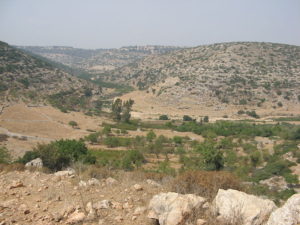A Game-Changing Proclamation in Nazareth
Suddenly and unexpectedly, a Town Crier, known as a praeco in Latin, shouted out a proclamation that changed history…and Mary’s destiny. He announced a decree from none other than Roman Caesar Augustus just days before Mary was to give birth, a game-changer with immediate consequences.[1]

LK 2: 1-3 “And it came to pass in those days that a decree went out from Caesar Augustus that all the world should be registered. This census first took place while Quirinius was governing Syria. So all went to be registered, everyone to his own city.” NKJV
A unique confluence of events was set in motion soon to culminate in Bethlehem. Augustus’ registration decree compelled Joseph and Mary to do the unthinkable.
Highly unlikely Jesus would be born any place other than Nazareth. Gabriel, the angel, who visited Mary announcing her supernatural conception, did not instruct her to go anywhere else to bear her child and there was no reason to think otherwise.
Mary was expected to give birth at home – most certainly not in a stone enclave used to shelter livestock in the faraway town of Bethlehem.[2] Nearly 9 months pregnant, she probably would have been looking forward to having the support of her husband Joseph, family and friends when that special moment would arrive.
Traditional Nativity accounts often cite a “census” decree issued by Caesar Augustus, a word not found in many of English Gospel translations…and for good reason. Latin for “census” is the word censēre which is not found anywhere in New Testament Greek texts nor even any works by historian Josephus during the Roman era.[3]
Greek for “census” is kensos meaning “tax” which also does not appear in Luke’s Greek text. Used only four times in the New Testament, kensos is used exclusively by the author of Matthew, a former tax collector, each time in the context of “tax” and not related to the Nativity story.[4]
Translating Greek to English has its challenges and Luke’s Nativity account is a prime example. The difficulty for translators is capturing the correct distinctions by relying, at least to some degree, on their contextual interpretation of the text.[5]
First and third verses of chapter 2, the Greek text of Luke contains the word apographo. The word is a verb meaning an activity to “write off (a copy or list), i.e. enrollment.”[6]
Verse 2 uses Greek word apographe, a noun meaning “an enrollment, by implication an assessment.”[7] It refers to the actual documented record – a written enrollment register or listing resulting from the enrollment activity initiated by Caesar’s decree.
Caesar’s decree initiated an action to make a list of the population in the Roman Empire by conducting an enrollment process. Various Bible versions have also translated the word “census” into English as “registration,” “enrolled,” “numbering,” and “taxed.”[8]
Common to all five English translation variations of Augustus’ decree have the characteristics of taking an action that produced a documented enrollment registration that was historically used later for taxation purposes. As such, English translations are consistent with a typical Roman census registration process.[9]
A Roman “census” was also used to enumerate the population; establish a public registry; identify Roman citizens; and size military needs.[10] Oft overlooked, it required an oath to be given at the time of registration that is not unlike today’s legal agreements and ULAs required for various purchases including mobile phones, credit cards services, and other online services.
Informing the people of the town, the announcement by the praeco of Augustus’ decree told them when and where to appear for the registration.[11] Compliance was not optional – failure to comply could result in loss of property, slavery, imprisonment or even death.[12]
Announcement of the decree came at the tail end of months of Roman government planning and implementation throughout the vast Empire.[13] Interestingly, if the announcement had occurred just a week later or a couple of weeks earlier, Jesus would have been born in Nazareth.

On short notice Joseph and Mary were compelled to travel 90-miles away. The journey risked the dangers that came with walking on the winding and hilly path through the wilderness to Bethlehem.[14]
Meanwhile, Magi from a foreign country were planning a month’s long journey to Jerusalem eventually ending up in Bethlehem. They were sent there by the reigning King, Herod, to find the baby “King of the Jews.”
Was the timing of the praeco’s announcement of Caesar’s decree merely a coincidence or was it a fulfillment of Micah’s Messiah prophecy?
Updated October 19, 2025.
This work is licensed under a Creative Commons Attribution-NonCommercial-NoDerivatives 4.0 International License.
REFERENCES:
[1] Smith, William. “Dictionary of Greek and Roman Geography.” 3rd Ed., Vol. 1. 1901. “Census.” Google Books. <https://books.google.com/books?id=Cu89AAAAYAAJ&pg=PA403&lpg=PA403&dq=greek+word+for+census&source=bl&ots=LM1MjmCiJt&sig=1_yjJgyNxcCcSWZvf0QK69IJuMw&hl=en&sa=X&ved=0ahUKEwjx0oPA04DYAhXo6YMKHebvAEwQ6AEIejAK#v=onepage&q=census&f=false> Livius, Titus. The History of Rome. Book 33, #28. <http://www.perseus.tufts.edu/hopper/text?doc=Perseus:text:1999.02.0144:book=33:chapter=28&highlight=crier> Pliny the Elder. The Natural History. 1.Dedication C. Plinius Secundus to His Friend Titus Vespasian. <http://www.perseus.tufts.edu/hopper/text?doc=Perseus:text:1999.02.0137:book=1:chapter=dedication&highlight=crier#note-link34> Gaffiot, Felix. Dictionnaire Faffiot. “praeco” drawing. 1934. <http://digital-gaffiot.sourceforge.net/p.html>
[2] Finkel, Michael. “Bethlehem 2007 A.D.” National Geographic. December, 2007.
[3] “Census.” Merriam-Webster. 2017. <https://www.merriam-webster.com/dictionary/census> Bunson, Matthew. Encyclopedia of the Roman Empire. “Censor; Census.” <https://archive.org/details/isbn_9780816045624>
[4] Net.Bible.org. kensos <2778>. http://classic.net.bible.org/strong.php?id=2778>; Search results, <http://classic.net.bible.org/search.php?search=greek_strict_index:2778> Strong, James, LL.D., S.T.D. The New Strong’s Exhaustive Concordance of the Bible. “2778 kensos.” 1990. “G2778.” Lexicon-Concordance Online Bible n.d. <http://lexiconcordance.com/greek/2778.html>
[5] Hu, Shuqin. “Context in Translation.” Journal of Language Teaching and Research. 2010. Vol. 1, No. #, pp 325-325. <http://www.academypublication.com/issues/past/jltr/vol01/03/25.pdf> “Importance of Context in Translation.” OneHourTranslation.com. 2015. <https://www.onehourtranslation.com/translation/blog/importance-context-translation>
[6] Net.bible.org. Luke Greek text. Strong, James. “apographo <583> (Greek).” The New Strong’s Exhaustive Concordance of the Bible. 1990. Smith, William; Wayte, William; Marindin, G.E., Ed. A Dictionary of Greek and Roman Antiquities. 1890. “apographe.” <https://books.google.com/books?id=Cu89AAAAYAAJ&pg=PA403&lpg=PA403&dq=greek+word+for+census&source=bl&ots=LM1MjmCiJt&sig=1_yjJgyNxcCcSWZvf0QK69IJuMw&hl=en&sa=X&ved=0ahUKEwjx0oPA04DYAhXo6YMKHebvAEwQ6AEIejAK#v=onepage&q=register&f=false>
[7] Net.bible.org. Greek text. Strong. “aprographe <582> (Greek).” The New Strong’s Exhaustive Concordance of the Bible.
[8] NASV, NRSV, ASV, BBE, KJV.
[9] Net.bible.org. “proserchomai <4334>”; “telones <5057>; “telonion <5058>”; phoros <5411>; “kensos <2778>”
[10] Smith, William. “Dictionary of Greek and Roman Geography.” 3rd Ed., Vol. 1. 1901. “Census.” Augustus, Caesar. The Deeds of the Devine Augustus. #8. <http://classics.mit.edu/Augustus/deeds.html> Cicero, M. Tullius. “For Marcus Caelius.” #32. <http://www.perseus.tufts.edu/hopper/text?doc=Perseus:text:1999.02.0020:text=Cael.:chapter=32&highlight=census> Cicero. “For Milo.” #27. <http://www.perseus.tufts.edu/hopper/text?doc=Perseus:text:1999.02.0020:text=Mil.:chapter=27&highlight=census> Cicero. “For Archias.” #5. <http://www.perseus.tufts.edu/hopper/text?doc=Perseus:text:1999.02.0019:text=Arch.:chapter=5&highlight=censors> Livius. The History of Rome. Book 9, #19. <http://www.perseus.tufts.edu/hopper/text?doc=Perseus:text:1999.02.0026:book=9:chapter=19&highlight=census> Livius. The History of Rome. Book 43, #14. <http://www.perseus.tufts.edu/hopper/text?doc=Perseus:text:1999.02.0144:book=43:chapter=14&highlight=censors>
[11] Smith, William. “Dictionary of Greek and Roman Geography.” 3rd Ed., Vol. 1. 1901. “Census.” “Paternity.” Jewish Encyclopedia. 2011. <http://jewishencyclopedia.com/articles/11939-paternity>
[12] “incense.” Merriam-Webster. Peck, Harry Thurston. Harpers Dictionary of Classical Antiquities (1898). “Incensus.” <http://www.perseus.tufts.edu/hopper/text?doc=Perseus:text:1999.04.0062:entry=incensus-harpers&highlight=incensus> Smith, W. “Censor.” Dictionary of Greek and Roman Antiquities. Tarwacka, Anna. “The consequences of avoiding census in Roman law.” 2013. <https://www.academia.edu/5525859/The_consequences_of_avoiding_census_in_Roman_law>
[13] Gertoux, Gerard. “Dating the two Censuses of Quirinius.” n.d. Academia.edu. <http://www.academia.edu/3184175/Dating_the_two_Censuses_of_Quirinius> Heinrich, Bill. Mysteries of the Messiah. 2016. “The Registration (Census).” <https://www.mysteriesofthemessiah.net/2016/01/04-03-09-bethlehem-c-6-5-b-c-the-registration-or-census/#_ftnref3> Tarwacka, Anna. “The consequences of avoiding census in Roman law.” 2013. <https://www.academia.edu/5525859/The_consequences_of_avoiding_census_in_Roman_law>
[14] “Paternity.” Jewish Encyclopedia. 2011. <http://jewishencyclopedia.com/articles/11939-paternity> “What is the distance between Nazareth and Bethlehem?” Reference.com. 2017. <https://www.reference.com/geography/distance-between-nazareth-bethlehem-6ac7e95c8360c7c7#> “Distance between Nazareth and Bethlehem.” DistanceFromTo.net. 2017. <https://www.distancefromto.net/between/Nazareth/Bethlehem>
